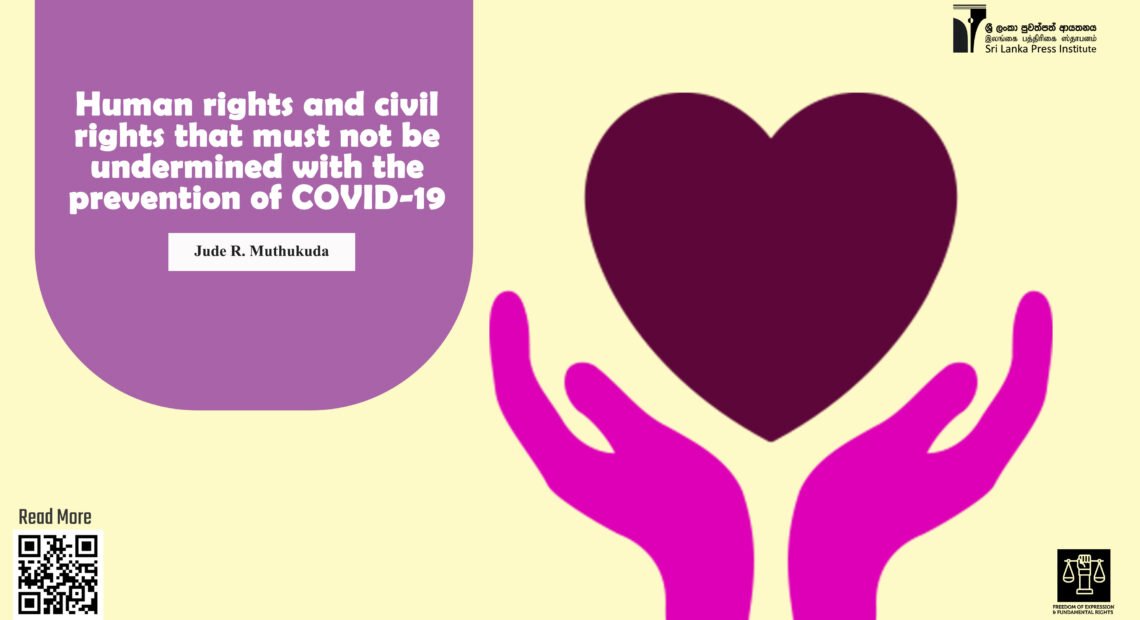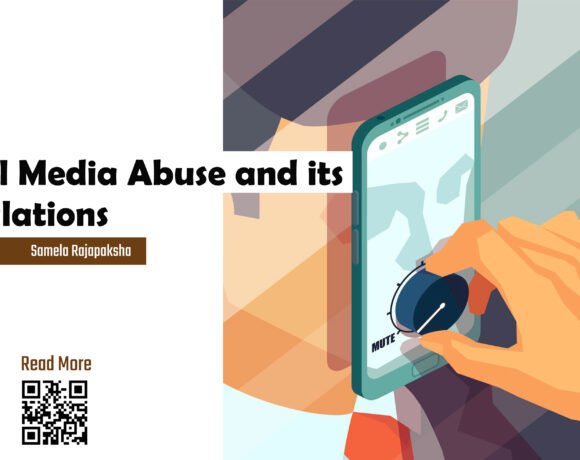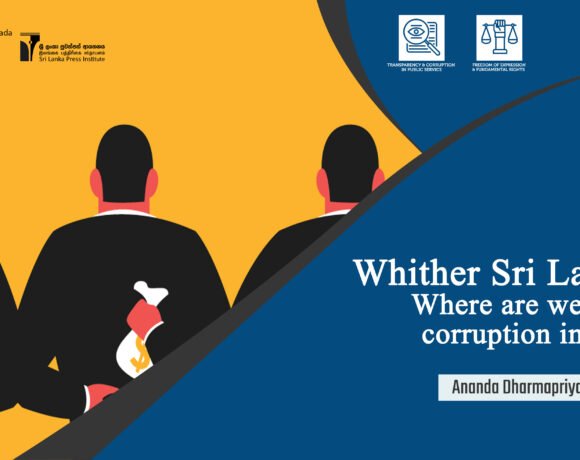
Human rights and civil rights that must not be undermined with the prevention of COVID-19
Jude R. Muthukuda
In terms of prevention of COVID-19, the common enemy is the coronavirus and not the patient. However, the Sri Lankan society has failed to understand this, and as a result, the human rights of the citizens are blatantly violated. The identity of the patients are exposed to society, and the patients are discriminated. Therefore, the persons with symptoms are reluctant to come forward for PCR tests and the spread of the virus in the society escalates as a result of it.
The society condemns COVID-19 person as criminals. The patients are taken for quarantine like criminals who are arrested. The health and defence sectors take crucial measures to prevent the epidemic. However, it is essential to safeguard the human rights, and civic rights during the operations against the pandemic.
How the bodies are PCR positive after the death? – Aruna Weekend Sinhala newspaper on 15th November 2020.
The current practice of marginalizing the COVID-19 patients and their families is against the equality guaranteed to the citizens by sections 12 (1) and 12 (2) of the constitution of Sri Lanka. These sections guarantee that all persons are equal before the law and are entitled to the equal protection of the law. “No citizen shall be discriminated against on the grounds of race, religion, language, caste, sex, political opinion, place of birth or any such grounds,” the constitution interprets.
No person catches COVID-19 on his or her own. No one has the intention to catch the disease. Is a person who contracts the coronavirus unintentionally a criminal? The criminal intention is critical in terms of criminal law. The persons who contract coronavirus have no intention of catching it. Without such intention, they cannot be considered criminals. But some media and social media users report incidents in a way the patients are shown as criminals who spread the disease. They name some persons and say that they have spread the virus. However, the person has contracted the disease from some other person and spread to others without knowledge about being infected. In such a backdrop, criminalizing COVID-19 patients is a menace. Stigma compels the patients to come forward for tests. They are afraid of being discriminated due to the disease. These situations escalate the spread of disease and the deaths by it. The families suffer due to exposure of the identity of the patients.
Garment corona cluster surrounds Horana – Aruna Weekend Sinhala newspaper on 15th November 2020.
Under the law of Sri Lanka, a photo of a person can be published only if it relates to the public interest. Sri Lanka lacks laws that safeguard personal privacy. However, according to health guidelines, it is unethical to expose the identity of a patient. In such a backdrop, is it reasonable to publish the identity details and the photos of a COVID-19 patient covering to the public interest? We can also question what the public interest of posting personal information such as their addresses, workplaces and even photos of residences of COVID-19 patients. The social media that exposed the personal data of the first COVID-19 patient of Brandix cluster embarrassed the woman’s daughter who was learning, and the damage cannot be excused by a simple apology. Although there are no legal definitions, media must be self-disciplined when reporting such incidents. The affected persons need some legal assistance. There is suspicion whether the exposure of privacy of the COVID-19 patients and stigma related to it has catalyzed the second wave of the pandemic.
The naval officers of Welisara Navy Camp, the employees of Brandix Company of Minuwangoda and the persons connected to the fish market in Peliyagoda were severely discriminated and marginalized. People were afraid of exposure of their identity through media and tried to hide the symptoms. They were in fear of social stigma and harassment against them.
Will the meter’s distance work in Colombo estates – Aruna Weekend Sinhala newspaper on 15th November 2020.
Some electronic media ignore the WHO guidelines and spread fear in the society by way of propagating scary stories about the complications of the disease. This is incredibly trendy on social media. These acts amount to terrifying people. Today, we are experiencing the outcome of such unethical practices.
The baseless fear of the disease sometimes leads to disasters. A driver of Sri Lanka Transport Board who transported the staff of Nagoda General Hospital of Kalutara committed suicide in fear of contracting COVID-19 when one of his passengers were diagnosed positive for COVID-19. Media must not terrify people by propagating clinical information among people. Instead, media must educate people on the ways of prevention of the disease.
Some shortcomings of the Quarantine Act and the gazette notification on the prevention of COVID-19 affect civilians. Gaps have been identified regarding the measures for the care of the family members who are disabled, elderly and underage. In one incident, a mentally disabled person who was neglected after admitting his caretaker mother into hospital committed suicide. When the persons who provide care services for the children, elderly and persons with disabilities are admitted into hospitals, there must be a care service for the family members who become helpless. As a society, we must remember that the human rights, privacy and the rights of children, elderly persons and persons with disabilities must be safeguarded even during pandemics.








